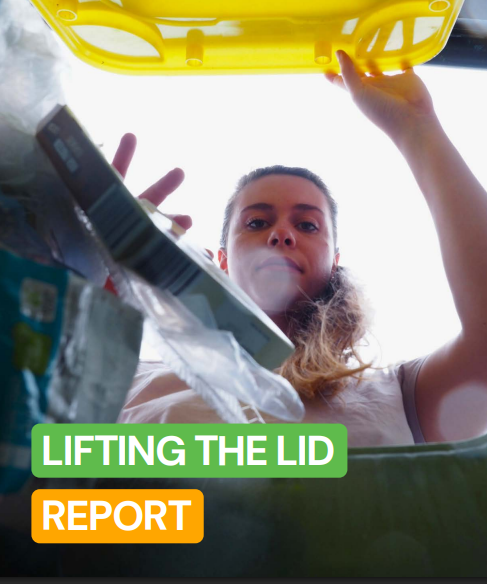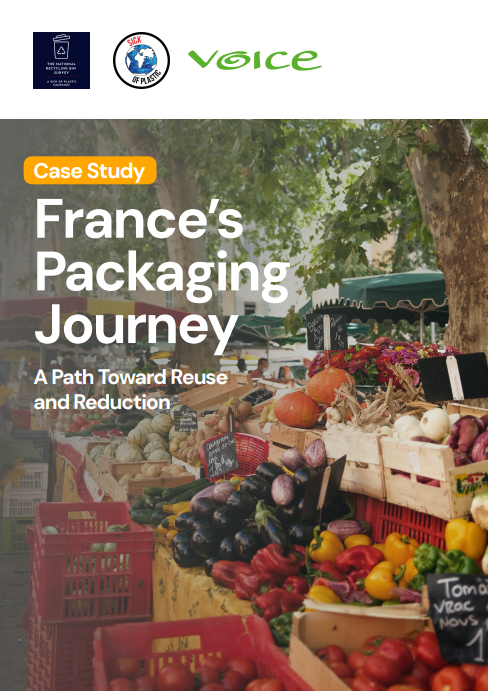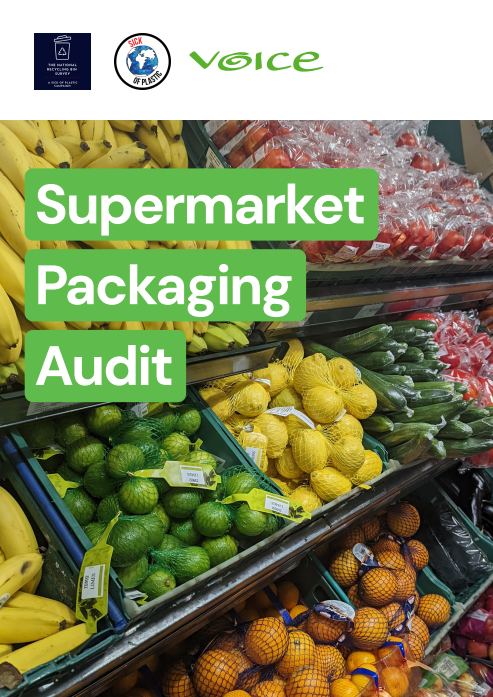'25 National Recycling Bin Survey
Plastic pollution is no longer just a waste issue: it’s a planetary crisis.
Plastics are present in every environment and in our bodies, with microplastics found in humans, animals, oceans, soil, and even the air we breathe. Some scientists, artists, and activists have gone so far as to name it the “Plasticocene”, a new geological epoch defined by plastic’s lasting imprint.

Globally, plastic production emits over 50 million tonnes of greenhouse gases annually. Half of all that plastic is designed to be single-use, often discarded after just 12 minutes.
In this global crisis, Ireland is no different.
In fact we are the number one producer of plastic packaging waste per capita in the EU, with 67 kilograms in 2023, which is a 50% increase since 2013.
In the past 10 years we have become completely reliant on single use packaging, mainly made of plastic, a consumption model that cannot be made sustainable.
Moreover, Ireland’s current recycling rate for plastic packaging of 32% is falling short of our EU targets of 50% by 2025.
In contrast, it is now believed that plastics will never fully decompose into the environment but instead continue to break down into smaller pieces, from microplastics to particles known as nanoplastics.
In order to tackle this crisis we need to work backwards and look at the sources of waste.
The National Recycling Bin Survey is the first in Ireland to analyse household recycling waste and attribute such waste to specific retail sectors.
The results of the Survey included 129 people in 50 households across 14 counties. Participants audited a total of 9,407 waste items, producing several key findings.
Bonus Supermarket Basket Comparison
We compared the average packaging and pricing of a sample basket across the five main Irish supermarkets with a Zero-waste shopping, the results are shocking.
Packaging-free shopping cut waste by 65% - no fancy innovation needed, solutions are already there.
This year’s NRBS included a new deep dive into the biggest contributors to household packaging waste: supermarkets. In a focused study, we tracked the packaging footprint of a typical weekly shop for a two-person household across five major supermarket chains (Supervalu, Tesco, Lidl, Aldi and Dunnes Stores). The results were striking! For a list of just 30 common grocery items, supermarkets generated:
- An average of 40 packaging pieces,
- 67% made from plastic materials (soft plastics, hard plastics, nets, tetrapaks and polyethylene).
In contrast, when we sourced the same items from zero-waste or low-packaging retailers, the packaging count dropped by 65%, to just 14 items.
By switching to less-packaged alternatives, individuals could cut their waste by 744 items of packaging per person each year. Scaled nationally, that’s a potential 4 billion less packaging needing waste management. And that’s with solutions already on the market. We could achieve even more if our food distribution systems were truly designed with reduction and reuse at their core.
Prices: although the zero-waste shopping was 19% more expensive than the average price across the five supermarkets (€63), it proved to be the same price as the shopping carried out in SuperValu (€75). A major factor to consider being that 40% of the packaging free shop was organic products, compared to 0% for the supermarkets.





